With Kondiaronk and Leibniz, re-inventing a society without oligarchy
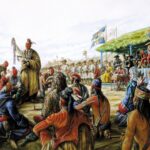
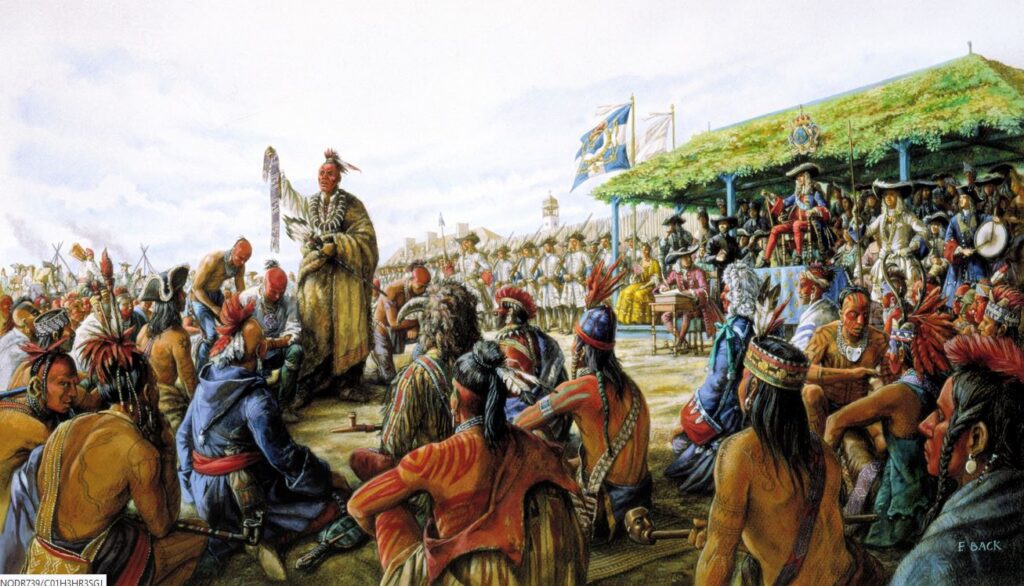
By Karel Vereycken, May 2023.
Helga Zepp-LaRouche, the founder of the Schiller Institute, in her keynote address to the Schiller Institute’s Nov. 22, 2022 videoconference, “For World Peace—Stop the Danger of Nuclear War: Third Seminar of Political and Social Leaders of the World,” called on world leaders to eradicate the evil principle of oligarchy.
Oligarchy is defined as a power structure in which power rests with a small number of people having certain characteristics (nobility, fame, wealth, education, or corporate, religious, political, or military control) and who impose their own power over that of their people.
To be precise, Zepp-LaRouche said :
“For 600 years, there has been a continuous battle between two forms of government, between the sovereign nation state and the oligarchical form of society, vacillating back and forth with sometimes a greater emphasis in this or that direction.
All empires based on the oligarchical model have been oriented towards protecting the privileges of the ruling elite, while trying to keep the masses of the population as backward as possible,
because as sheep they are easier to control (…)”
Now, unfortunately, most of the citizens of the transatlantic world and elsewhere will tell you that abolishing the oligarchical principle is “a good idea”, a “beautiful dream”, but that reality tells us “it can’t happen” for the very simple reason that “it never happened before”.
Societies, by definition, they argue, are in-egalitarian. Kings and Presidents of Republics, they argue, eventually might have “pretended” they ruled over the masses for their “common good”, but in reality, our fellow-citizens think, it was always the rule of a handful favoring their own interest over the majority.
The BRICS
Interesting for all of us, is that some leading thinkers involved in the BRICS movement, are trying to imagine new ways of collective rule excluding oligarchical principles.
For example, going in that direction, economist Pedro Paez, former advisor to Ecuador’s Rafael Correa, in his intervention at the April 15-16 Schiller Institute’s video conference, defended
“a new concept of currency based on monetary arrangements of clearing houses for regional payments, that can be joined into a world clearing house system, which could also prevent another type of unilateral, unipolar hegemony from arising, such as the one that was established with Bretton Woods, and that would instead open the doors to multipolar management”.
Also Belgian philosopher and theologian Marc Luyckx, a former member of the Jacques Delors famous taskforce « Cellule de Prospective » of the European Commission, in a video interview on the de-dollarization of the world economy, underlined that the BRICS countries are creating a world order whose nature makes it so that not a single member of their own group can become the dominant power.
The Dawn of Everything
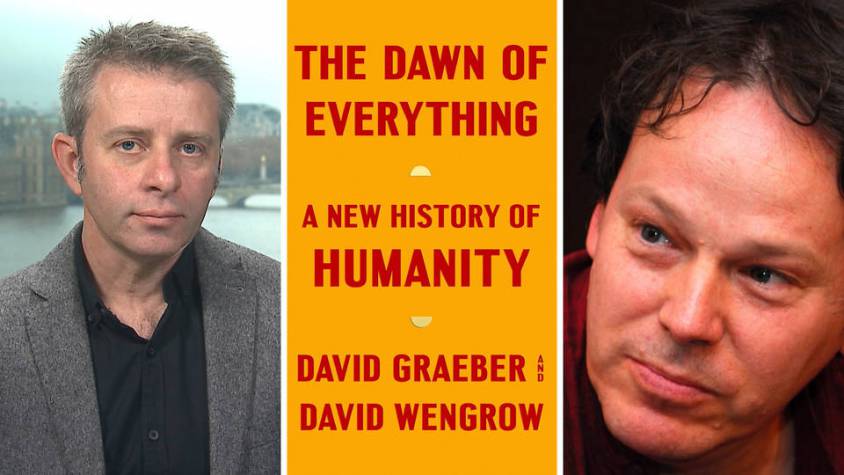
The good news is that a mind-provoking, 700-page book, titled “The Dawn of Everything: A New History of Humanity”, written and published in 2021 by the American anthropologist David Graeber and the British archaeologist David Wengrow, destroys the conventional notions of ancient human cultures making linear progress toward the neo-liberal economic model and therefore, by implication, high levels of inequality.
Even better, based on hard facts, the book largely debunks the “narrative” that oligarchical rule is somehow “natural”. Of course, the oligarchical principle ruled often and often for a long time. But, surprisingly, the book offers overwhelming indications and “hard facts” proving that in ancient times, some societies, though not all, which eventually prospered over centuries, through political choices, consciously adopted modes of governance preventing minority groups from permanently keeping a hegemonic grip over societies.
Zepp-LaRouche’s 10th point
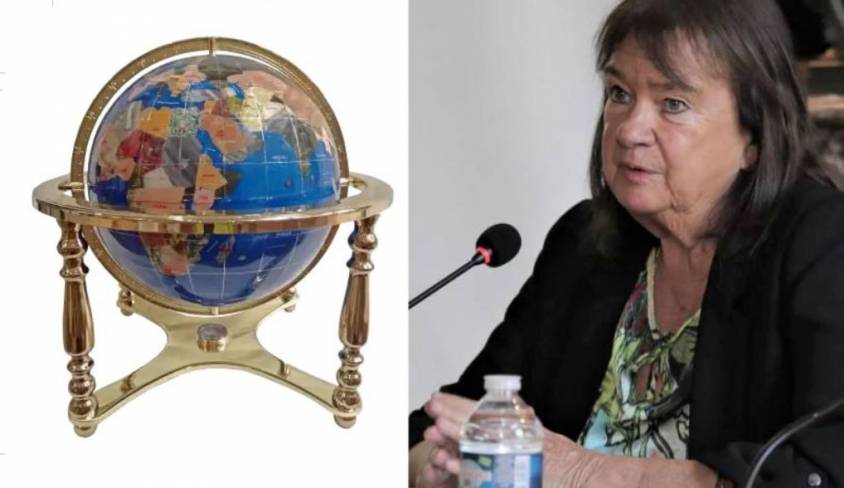
The subject matter of this issue is intimately linked to the 10th point raised by Helga Zepp-LaRouche, which, in order to demonstrate that all sources of evil can be eradicated by education and political decision, that man’s natural inclination, is intrinsically to do the good. The very existence of historical precedents of societies surviving without oligarchy over hundreds of years, is of course, the “practical” proof of man’s axiomatic inclination to do the good.
Unsurprisingly, some argue that the issue of “good” and “evil” is nothing but a “theological debate”, since the concepts of “good” and “evil” are concepts made up by humans in order to compare themselves with one another. They argue it would never occur to anyone to argue about whether a fish, or a tree, were good or evil, since they lack any form of self-conscience enabling them to measure if their deeds and actions fulfill their own inclination or that of their creator.
Now, part of the “Biblical answer” to this question, if man is bad or evil, claims that people “once lived in a state of innocence”, yet were tainted by original sin. We desired to be godlike and have been punished for it; now we live in a fallen state while hoping for future redemption.
Overturning the evil Rousseau and Hobbes
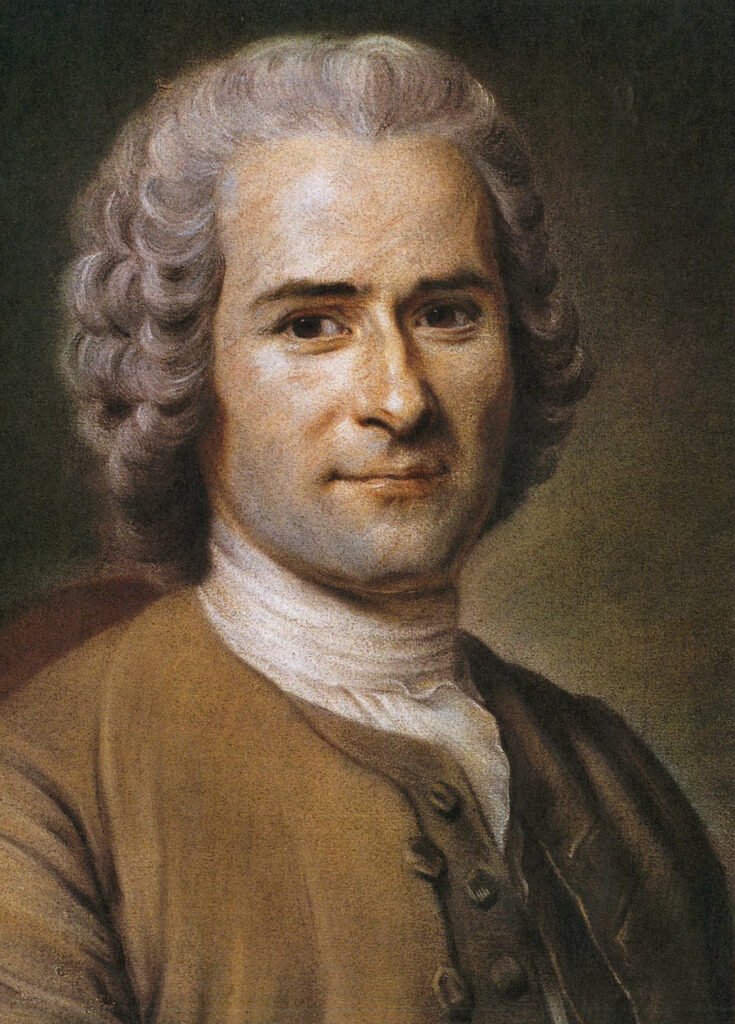
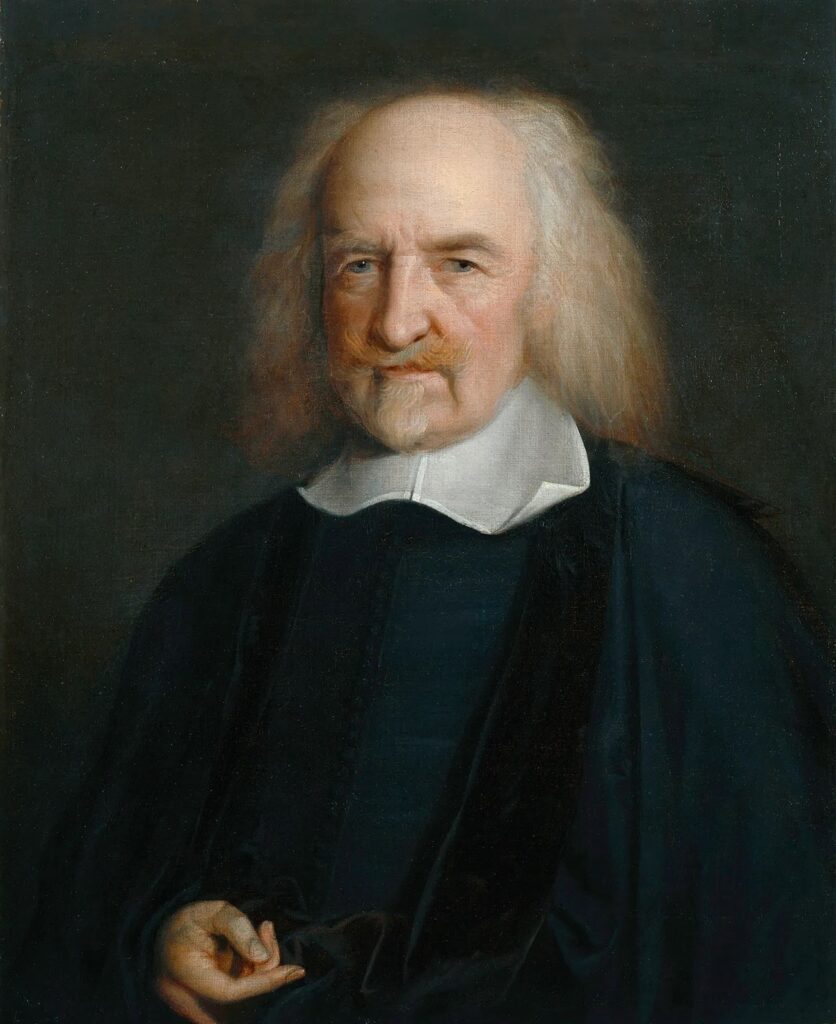
Graeber and Wengrow, establishing the core argument of their entire book, demonstrate in a very provocative way how we got brainwashed by the pessimistic and destructive oligarchical ideology, especially that promoted by both Rousseau and Hobbes, for whom inequality is the natural state of man, a humanity which might have eventually been good as “a noble savage”, before becoming “civilized” and a society only surviving thanks to a “social contract” (voluntary bottom-up submission) or a “Leviathan” (top down dictatorship) :
“Today, the popular version of this [biblical] story [of man thrown out of the Garden of Eden] is typically some updated variation on Jean-Jacques Rousseau’s Discourse on the Origin and the Foundation of Inequality Among Mankind, which he wrote in 1754. Once upon a time, the story goes, we were hunter-gatherers, living in a prolonged state of childlike innocence, in tiny bands. These bands were egalitarian; they could be for the very reason that they were so small. It was only after the “Agricultural Revolution,” and then still more the rise of cities, that this happy condition came to an end, ushering in ‘civilization’ and ‘the state’—which also meant the appearance of written literature, science and philosophy, but at the same time, almost everything bad in human life: patriarchy, standing armies, mass executions and annoying bureaucrats demanding that we spend much of our lives filling in forms.
“Of course, this is a very crude simplification, but it really does seem to be the foundational story that rises to the surface whenever anyone, from industrial psychologists to revolutionary theorists, says something like ‘but of course human beings spent most of their evolutionary history living in groups of ten or twenty people,’ or ‘agriculture was perhaps humanity’s worst mistake.’ And as we’ll see, many popular writers make the argument quite explicitly. The problem is that anyone seeking an alternative to this rather depressing view of history will quickly find that the only one on offer is actually even worse: if not Rousseau, then Thomas Hobbes.
“Hobbes’s Leviathan, published in 1651, is in many ways the founding text of modern political theory. It held that, humans being the selfish creatures they are, life in an original State of Nature was in no sense innocent; it must instead have been ‘solitary, poor, nasty, brutish, and short’—basically, a state of war, with everybody fighting against everybody else. Insofar as there has been any progress from this benighted state of affairs, a Hobbesian would argue, it has been largely due to exactly those repressive mechanisms that Rousseau was complaining about: governments, courts, bureaucracies, police. This view of things has been around for a very long time as well. There’s a reason why, in English, the words ‘politics’ ‘polite’ and ‘police’ all sound the same—they’re all derived from the Greek word polis, or city, the Latin equivalent of which is civitas, which also gives us ‘civility,’ ‘civic’ and a certain modern understanding of ‘civilization.
“Human society, in this view, is founded on the collective repression of our baser instincts, which becomes all the more necessary when humans are living in large numbers in the same place. The modern-day Hobbesian, then, would argue that, yes, we did live most of our evolutionary history in tiny bands, who could get along mainly because they shared a common interest in the survival of their offspring (‘parental investment,’ as evolutionary biologists call it). But even these were in no sense founded on equality. There was always, in this version, some ‘alpha-male’ leader. Hierarchy and domination, and cynical self-interest, have always been the basis of human society. It’s just that, collectively, we have learned it’s to our advantage to prioritize our long-term interests over our short-term instincts; or, better, to create laws that force us to confine our worst impulses to socially useful areas like the economy, while forbidding them everywhere else
“As the reader can probably detect from our tone, we don’t much like the choice between these two alternatives. Our objections can be classified into three broad categories. As accounts of the general course of human history, they:
1) simply aren’t true;
2) have dire political implications and
3) make the past needlessly dull.”
As a consequence of the victory of imperial models of political power, the only accepted “narrative” of man’s “evolution”, automatically validating an oligarchical grip over society, is that which allows “confirming” the pre-agreed-upon dogma erected as immortal “truth”. And any historical findings or artifacts contradicting or invalidating the Rousseau-Hobbes narrative will be, at best, declared anomalies.
Open our eyes
Graeber and Wengrow’s book is an attempt
“to tell another, more hopeful and more interesting story; one which, at the same time, takes better account of what the last few decades of research have taught us. Partly, this is a matter of bringing together evidence that has accumulated in archaeology, anthropology and kindred disciplines; evidence that points towards a completely new account of how human societies developed over roughly the last 30,000 years. Almost all of this research goes against the familiar narrative, but too often the most remarkable discoveries remain confined to the work of specialists, or have to be teased out by reading between the lines of scientific publications.”
To give just a sense of how different the emerging picture is:
“[I]t is clear now that human societies before the advent of farming were not confined to small, egalitarian bands. On the contrary, the world of hunter-gatherers as it existed before the coming of agriculture was one of bold social experiments, resembling a carnival parade of political forms, far more than it does the drab abstractions of evolutionary theory. Agriculture, in turn, did not mean the inception of private property, nor did it mark an irreversible step towards inequality. In fact, many of the first farming communities were relatively free of ranks and hierarchies. And far from setting class differences in stone, a surprising number of the world’s earliest cities were organized on robustly egalitarian lines, with no need for authoritarian rulers,
ambitious warrior-politicians, or even bossy administrators.”
Kondiaronk, Leibniz and the Enlightenment

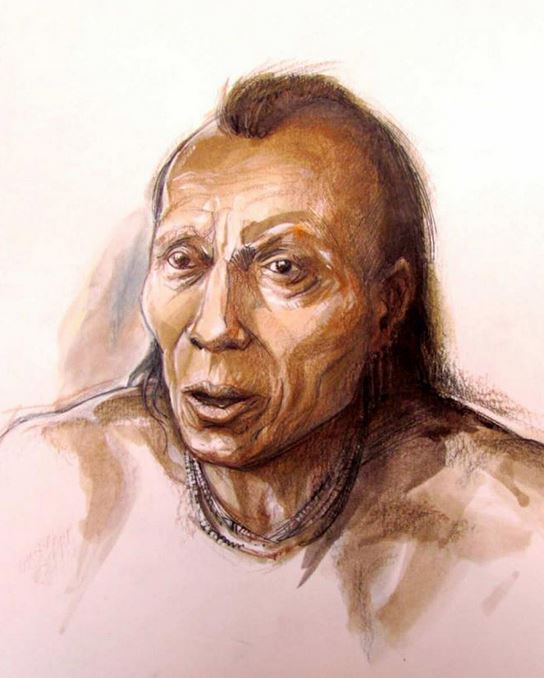
In fact, Rousseau’s story, argue the authors, was in part a response to critiques of European civilization, which began in the early decades of the 18th century. “The origins of that critique, however, lie not with the philosophers of the Enlightenment (much though they initially admired and imitated it), but with indigenous commentators and observers of European society, such as the Native American (Huron-Wendat) statesman Kondiaronk,” and many others.
And when prominent thinkers, such as Leibniz, “urged his patriots to adopt Chinese models of statecraft, there is a tendency for contemporary historians to insist they weren’t really serious”.
However, many influential Enlightenment thinkers did in fact claim that some of their ideas on the subject of inequality were directly taken from Chinese or Native American sources!
Just as Leibniz became familiar with Chinese civilization through his contact with the Jesuit missions, the ideas from Native Americans reached Europe by way of books such as the widely read seventy-one-volume report The Jesuit Relations, published between 1633 and 1673.
While today, we would think personal freedom is a good thing, this was not the case for the Jesuits complaining about the Native Americans. The Jesuits were opposed to freedom in principle:
“This, without doubt, is a disposition quite contrary to the spirit of the Faith, which requires us to submit not only our wills, but our minds, our judgments, and all the sentiments of man
to a power unknown to the laws and sentiments of corrupt nature.”
Jesuit father Jérôme Lallemant, whose correspondence provided an initial model for The Jesuit Relations, noted of the Wendat Indians in 1644: “I do not believe that there is a people on earth freer than they, and less able to allow to the subjection of their wills to any power whatever”.
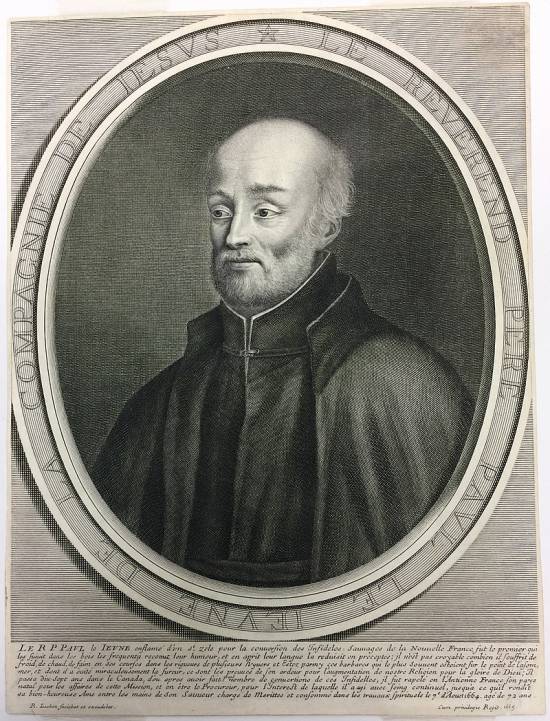
Even more worrisome, their high level of intelligence. Father Paul Le Jeune, Superior of the Jesuits in Canada in the 1630:
“There are almost none of them incapable of conversing or reasoning very well, and in good terms, on matters within their knowledge. The councils, held almost every day in the Villages, and on almost all matters, improve their capacity for talking”.
Or in Lallemant’s words:
“I can say in truth that, as regards intelligence, they are in no ways inferior to Europeans and to those who dwell in France. I would never have believed that, without instruction, nature could have supplied a most ready and vigorous eloquence, which I have admired in many Hurons (American Natives); or more clear-nearsightedness in public affairs, or a more discreet management in things to which they are accustomed”.
(The Jesuit Relations, vol. XXVIII, p. 62.)
Some Jesuits went much further, noting – not without a trace of frustration – that New World “savages” seemed rather cleverer overall than the people they were used to dealing with at home.

The ideas of Native Indian statesman Kondiaronk (c. 1649–1701), known as “The Rat” and the Chief of the Native American Wendat people at Michilimackinac in New France, reached Leibniz via an impoverished French aristocrat named Louis-Armand de Lom d’Arce, Baron de la Hontan, better known as Lahontan.
In 1683, Lahontan, age 17, joined the French army and was posted in Canada. In his various missions, he became fluent in both Algonkian and Wendat and good friends with a number of indigenous political figures, including the brilliant Wendat statesman Kondiaronk. The latter impressed many French observers with his eloquence and brilliance and frequently met with the royal governor, Count Louis de Buade de Frontenac. Kondiaronk himself, as Speaker of the Council (their governing body) of the Wendat Confederation, is thought to have been sent as an ambassador to the Court of the French King, Louis XIV, in 1691.
The Great Peace of Montreal
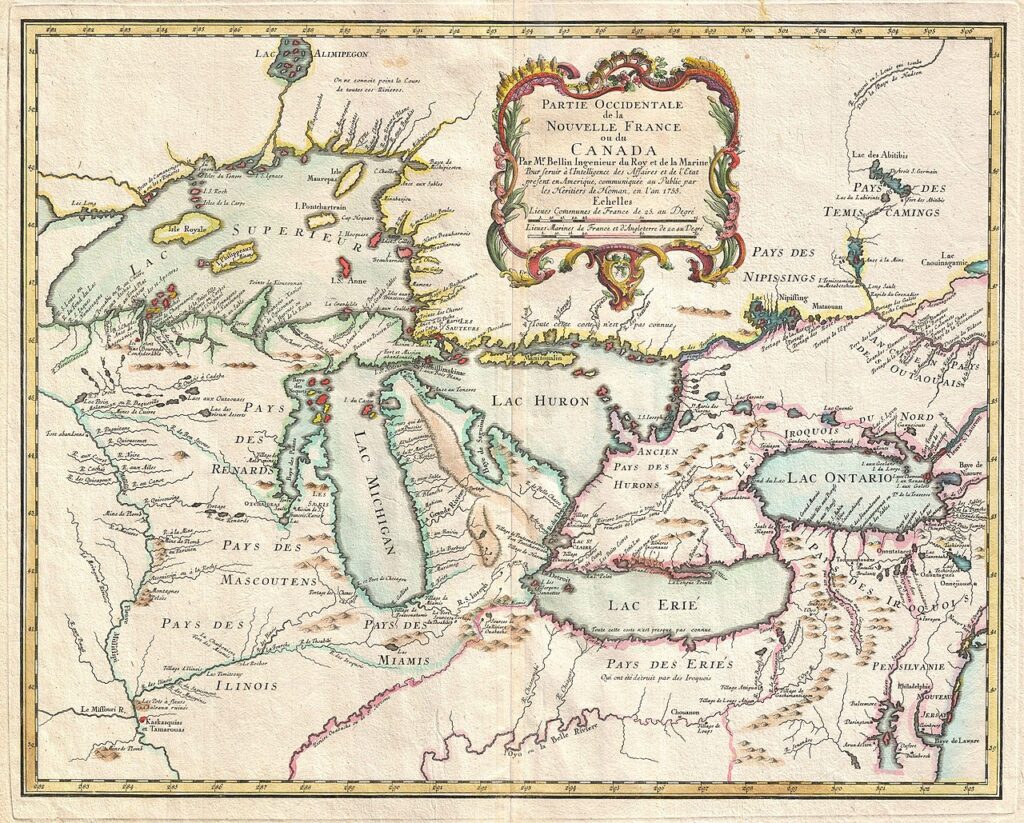

Even after being betrayed by the French, and obliged to conduct his own wars to secure his fellow men, Kondiaronk, played a key role in what is remembered as the “Great Peace of Montreal” of August 1, 1701, which ended the bloody Beaver Wars, in reality proxy wars between the British and the French, each of them using the native Indians as “cannon fodder” for their own geopolitical schemes
France was increasingly cornered by the British. Therefore, at the request of the French, in the summer of 1701, more than 1,300 Indians, from forty different nations, gathered near Montreal, dispite the fact that the city was ravaged by influenza. They came from the Mississippi Valley, the Great Lakes, and Acadia. Many were lifelong enemies, but all had responded to an invitation from the French governor. Their future and the fate of the colony were at stake. Their goal was to negotiate a comprehensive peace, among themselves and with the French. The negotiations dragged on for days, and peace was far from being guaranteed. The chiefs were wary. The main stumbling block to peace was the return of prisoners who had been captured during previous campaigns and enslaved or adopted.
Without Kondiaronk’s support, peace was unattainable. On August 1, seriously ill, he spoke for two hours in favor of a peace treaty that would be guaranteed by the French. Many were moved by his speech. The following night, Kondiaronk died, struck down by influenza at the age of 52.
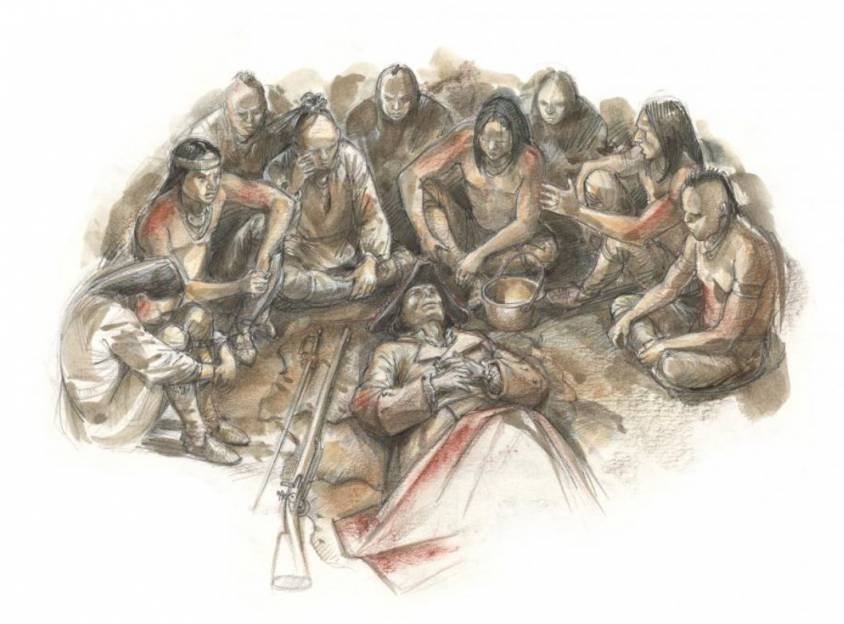
But the next day, the peace treaty was signed. From now on there would be no more wars between the French and the Indians. Thirty-eight nations signed the treaty, including the Iroquois. The Iroquois promised to remain neutral in any future conflict between the French and the Iroquois’ former allies, the English colonists of New England.
Kondiaronk was praised by the French and presented as a “model” of peace-loving natives. The Jesuits immediately put out the lie that, just before dying, he had “converted” to the Catholic faith in the hope other natives would follow his model.
Lahontan from Amsterdam to Hanover
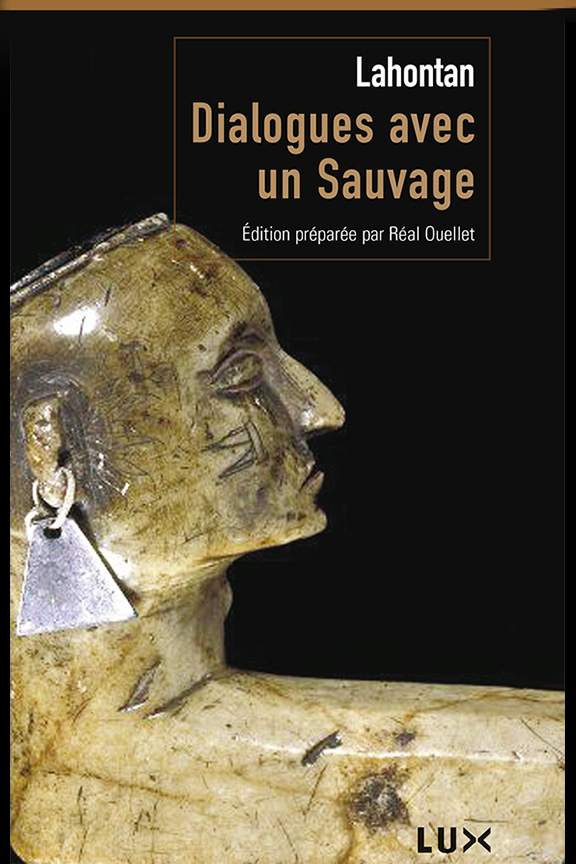
Now, following various events, Lahontan ended up in Amsterdam. In order to make a living he wrote a series of books about his adventures in Canada, the third one entitled Curious Dialogues with a Savage of Good Sense Who Has Travelled (1703), comprising four dialogues with a fictional figure, “Adario” (in reality Kondiaronk), which were rapidly translated into German, Dutch, English, and Italian. Lahontan, himself, gaining some sort of celebrity, settled in Hannover, where he befriended the great philosopher and scientist Wilhelm Gottfried Leibniz.
On the lookout for everything that was being discussed in Europe, the philosopher, then 64 years old, seems to have been put on the track of Lahontan by Dutch and German journalists, but also by the text of an obscure theologian from Helmstedt, Conrad Schramm, whose introductory lecture, the « The Stammering Philosophy of the Canadians », had been published in Latin in 1707. Referring first to Plato and Aristotle (which he abandoned almost immediately), Schramm used the Dialogues and the Memoirs of Lahontan to show how the « Canadian barbarians knock on the door of philosophy but do not enter because they lack the means or are locked into their customs”.
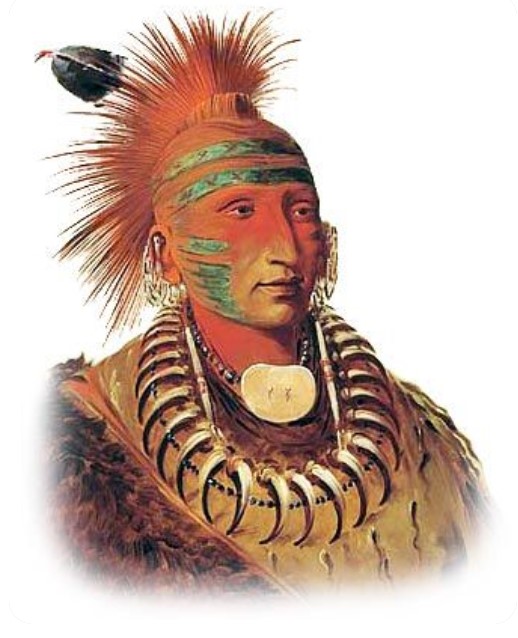
Far less narrow-minded, Leibniz saw in Lahontan a confirmation of his own political optimism, which allowed him to affirm that the birth of society does not come from the need to get out of a terrible state of war, as Thomas Hobbes believed, but from a natural aspiration to concord.
But what captured his main interest, was not so much whether the “American savages” were capable, or not, of philosophizing, but whether they really lived in concord without government.
To his correspondent Wilhelm Bierling, who asked him how the Indians of Canada could live “in peace although they have neither laws nor public magistracies [tribunals]”, Leibniz replied:
“It is quite true […] that the Americans of these regions live together without any government but in peace; they know neither fights, nor hatreds, nor battles, or very few, except against men of different nations and languages.
I would almost say that this is a political miracle,
unknown to Aristotle and ignored by Hobbes.”
Leibniz, who claimed to know Lahontan well, underlined that Adario, “who came in France a few years ago and who, even if he belongs to the Huron nation, judged its institutions superior to ours.”
This conviction of Leibniz will be expressed again in his Judgment on the works of M. le Comte Shaftesbury, published in London in 1711 under the title of Charactersticks:
« The Iroquois and the Hurons, savages neighboring New France and New England, have overturned the too universal political maxims of Aristotle and Hobbes. They have shown, by their super-prominent conduct, that entire peoples can be without magistrates and without quarrels, and that consequently men are neither sufficiently motivated by their good nature, nor sufficiently forced by their wickedness to provide themselves with a government and to renounce their liberty. But these savages shows that it is not so much the necessity, as the inclination to go to the best and to approach felicity, by mutual assistance, which makes the foundation of societies and states; and it must be admitted that security is the most essential point”.
While these dialogues are often downplayed as fictional and therefore merely invented for the sake of literature, Leibniz, in a letter to Bierling dated November 10, 1719, responded: « The Lahontan’s Dialogues, although not entirely true, are not completely invented either.”
As a matter of fact, Lahontan himself, in the preface to the dialogues, wrote:
“When I was in the village of this [Native] American, I took on the agreeable task of carefully noting all his arguments. No sooner had I returned from my trip to the Canadian lakes than I showed my manuscript to Count Frontenac, who was so pleased to read it that he made the effort to help me put these Dialogues into their present state.”
People today tend to forget that tape-recorders weren’t around in those days.
For Leibniz, of course, political institutions were born of a natural aspiration to happiness and harmony. In this perspective, Lahontan’s work does not contribute to the construction of a new knowledge; it only confirms a thesis Leibniz had already constituted.
A critical view on the Europeans and the French in particular
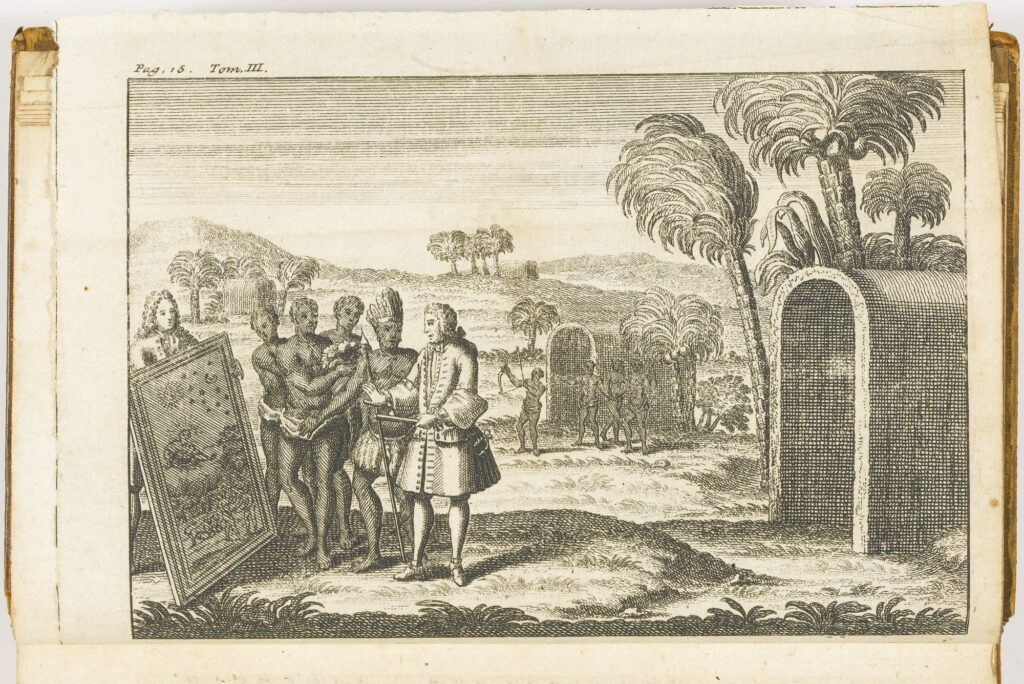
Hence, Lahontan, in his memoirs, says that Native Americans, such as Kondiaronk, who had been in France,
“were continually teasing us with the faults and disorders they observed in our towns, as being occasioned by money. There’s no point in trying to remonstrate with them about how useful the distinction of property is for the support of society: they make a joke of everything you say on that account. In short, they neither quarrel nor fight, nor slander one another; they scoff at arts and sciences, and laugh at the difference of ranks which is observed with us. They brand us for slaves, and call us miserable souls, whose life is not worth having, alleging that we degrade ourselves in subjecting ourselves to one man [the king] who possesses all power, and is bound by no law but his own will.”
Lahontan continues:
“They think it unaccountable that one man should have more than another,
and that the rich should have more respect than the poor.
In short, they say, the name of savages, which we bestow upon them, would fit ourselves better,
since there is nothing in our actions that bears an appearance of wisdom.”
In his dialogue with Kondiaronk, Lahontan tells him that if the wicked remained unpunished, we would become the most miserable people of the earth. Kondiaronk responds:
“For my part, I find it hard to see how you could be much more miserable than you already are. What kind of human, what species or creature, most Europeans be, that they have to be forced to do the good, and only refrain from evil because of fear of punishment?… You have observed we lack judges. What is the reason for that? Well, we never bring lawsuits against one another. And why do we never bring lawsuits? Well because we made a decision neither to accept or make use of money. And why do we refuse to allow money in our communities? The reason is this: we are determined not to have laws – because, since the world was a world, our ancestors have been able to live contentedly without them.”
Brother Gabriel Sagard, a French Recollect Friar, reported that the Wendat people were particularly offended by the French lack of generosity to one another:
“They reciprocate hospitality and give such assistance to one another that the necessities of all are provided for without there being any indigent beggar in their towns and villages;
and they considered it a very bad thing when they heard it said
that there were in France a great many of these needy beggars,
and thought that this was for lack of charity in us, and blamed us for it severely”.
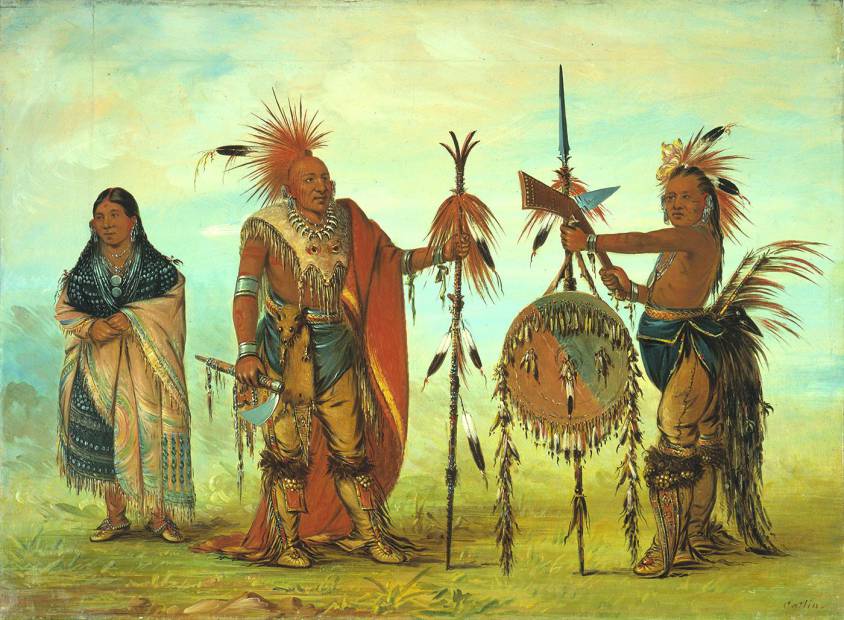
Money, thinks Kondiaronk, creates an environment that encourages people to behave badly:
“I have spent six years reflecting on the state of European society and I still can’t think of a single way they act that’s not inhuman, and I genuinely think this can only be the case, as long as you stick to your distinctions of ‘mine’ and ‘thine’. I affirm that what you call money is the devil of devils; the tyrant of the French, the source of all evils; the bane of souls and the slaughterhouse of the living. To imagine one can live in the country of money and preserve one’s soul is like imagining one could preserve one’s life at the bottom of a lake. Money is the father of luxury, lasciviousness, intrigues, trickery, lies, betrayal, insincerity, – all of the world’s worst behaviors. Fathers sell their children, husbands their wives, wives betray their husbands, brothers kill each other, friends are false, and all because of money. In the light of all this, tell me that we Wendat are not right in refusing to touch, or so much as to look at money?”
In the third footnote of his speech on the origins on inequality, Jean-Jacques Rousseau, who invented the idea of the “noble savage” presumably existing before man engaged in agriculture, himself refers to
“those happy nations, who do not know even the names of the vices
which we have such trouble controlling,
of those American savages whose simple and natural ways of keeping public order
Montaigne does not hesitate to prefer to Plato’s laws…”
Europeans refusing to return
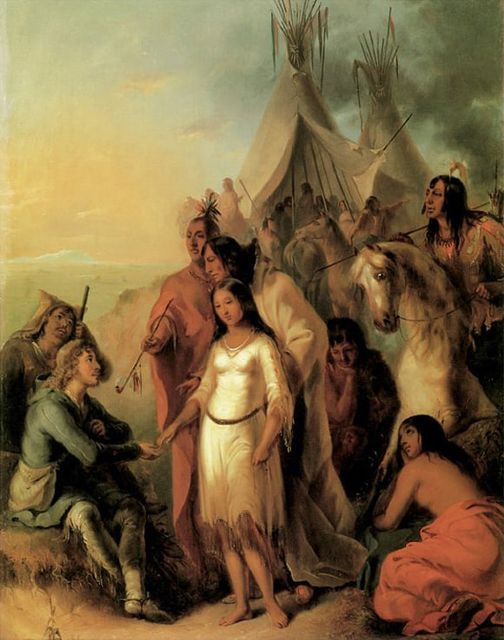
Another observation is that of Swedish botanist Peher Kalm, who, in 1749, was astonished by the fact that a large number of Europeans, exposed to Aboriginal life, did not want to return:
“It is also remarkable that the greater part of the European prisoners who, on the occasion of the war, were taken in this way and mixed with the Indians, especially if they were taken at a young age, never wanted to return to their country of origin afterwards, even though their father and mother or close relatives came to see them to try to persuade them to do so, and they themselves had every freedom to do so. But they found the Indians’ independent way of life preferable to that of the Europeans; they adopted native clothing and conformed in every way to the Indians, to the point where it is difficult to distinguish them from the Indians, except that their skin and complexion are slightly whiter. We also know of several examples of Frenchmen who have voluntarily married native women and adopted their way of life; on the other hand, we have no example of an Indian marrying a European woman and adopting her way of life; if he happens to be taken prisoner by the Europeans during a war, he always looks for an opportunity, on the contrary, to return home, even if he has been detained for several years and has enjoyed all the freedoms that a European can enjoy.”
Before Lahontan:
Thomas More’s Utopians
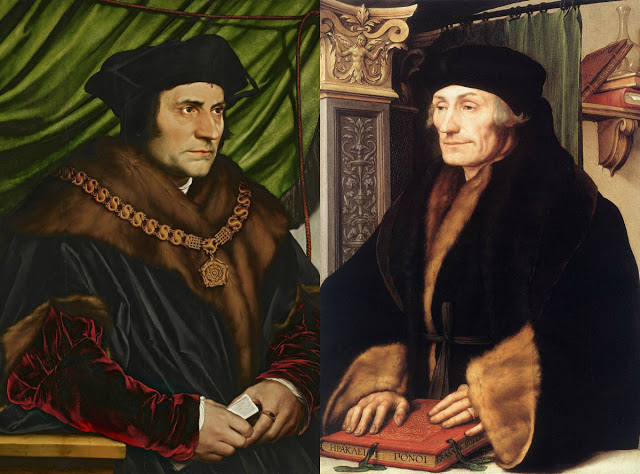
In 1492, as the joke goes, “America discovered Columbus, a Genoese captain lost at sea”. The mission he had been entrusted with was motivated by a variety of intentions, not least the idea of reaching, by traveling west, China, a continent thought to be populated by vast populations unaware of Christ’s inspiring and optimistic message, and therefore in urgent need of evangelization.
Unfortunately, two years later, a less theological interest arose when, on June 7, 1494, the Portuguese and Spanish signed the Treaty of Tordesillas at the Vatican, under the supervision of Pope Alexander IV (Borgia), dividing the entire world between two dominant world powers:
- the Spanish Empire under top-down control of the continental Habsburg/Venice alliance;
- the Portuguese Empire under that of the banking cartel of Genoese maritime slave traders.
This didn’t stop the best European humanists, two centuries before Lahontan, from raising their voices and showing that some of the so-called “savages” of the United States had virtues and qualities absolutely worthy of consideration and possibly lacking here in Europe.
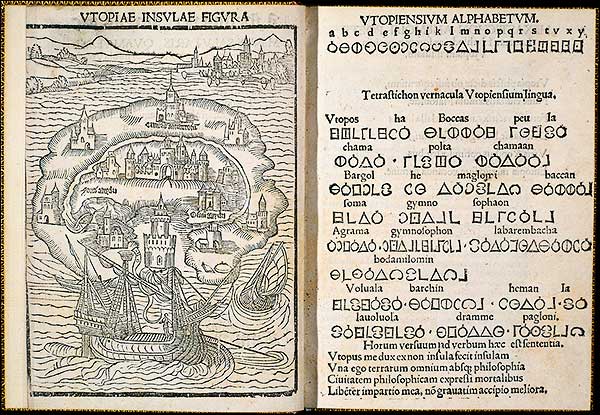
Such was the case with Erasmus of Rotterdam and his close friend and collaborator Thomas More, who shared what are thought to be their views on America in a little book entitled “U-topia” (meaning ‘any’ place), jointly written and published in 1516 in Leuven, Belgium.
By instinct, the reports they received of America and the cultural characteristics of its natives, led them to believe that they were dealing with some lost colony of Greeks or even the famous lost continent of Atlantis described by Plato in both his Timaeus and Critias.
In More’s Utopia, the Portuguese captain Hythlodeus describes a highly organized civilization: it has flat-hulled ships and “sails made of sewn papyrus”, made up of people who “like to be informed about what’s going on in the world” and whom he “believes to be Greek by origin”.
At one point he says:
“Ah, if I were to propose what Plato imagined in his Republic, or what the Utopians put into practice in theirs, these principles, although far superior to ours – and they certainly are –
might come as a surprise, since with us, everyone owns his property,
whereas there, everything is held in common.”
(no private property).
As far as religion is concerned, the Utopians (like the Native Americans)
“have different religions but, just as many roads lead to one and the same place, all their aspects, despite their multiplicity and variety, converge towards the worship of the divine essence. That’s why nothing can be seen or heard in their temples except what is consistent with all beliefs.
The particular rites of each sect are performed in each person’s home;
public ceremonies are performed in a common place;
Public ceremonies are performed in a form that in no way contradicts them.«
And to conclude :
“Some worship the Sun, others the Moon or some other planet (…) The majority, however, and by far the wisest, reject these beliefs, but recognize a unique god, unknown, eternal, in-commensurable, impenetrable, inaccessible to human reason, spread throughout our universe in the manner, not of a body, but of a power. They call him Father, and relate to him alone the origins, growth, progress, vicissitudes and decline of all things. They bestow divine honors on him alone (…) Moreover, despite the multiplicity of their beliefs, the other Utopians at least agree on the existence of a supreme being, creator and protector of the world.”
Exposing the trap of woke ideology
Does that mean that “all Europeans were evil” and that “all Native Americans were good”? Not at all! The authors don’t fall for such simplistic generalizations and “woke” ideology in general.
For example, even with major similarities, the cultural difference between the First Nation of the Canadian Northwest Coast and those of California, was as big as that between Athens and Sparta in Greek antiquity, the first a republic, the latter an oligarchy.
Different people and different societies, at different times, made experiments and different political choices about the axiomatics of their culture.
While in California, forms of egalitarian and anti-oligarchical self-government erupted, in some areas of the north, oligarchical rule prevailed:
“[F]rom the Klamath River northwards, there existed societies dominated by warrior aristocrats engaged in frequent inter-group raiding, an in which, traditionally, a significant portion of the population had consisted of chattel slaves. This apparently had been true as long as anyone living there could remember.”
Northwest societies took delight in displays of excess, notably during festivals known as “potlach” sometimes culminating in
“the sacrificial killing of slaves (…) In many ways, the behavior or Northwest Coast aristocrats resembles that of Mafia dons, with their strict codes of honor and patronage relations; or what sociologists speak of as ‘court societies’ – the sort of arrangement one might expect in, say, feudal Sicily, from which the Mafia derived many of its cultural codes.”
So, the first point made by the authors is that the infinite diversity of human societies has to be taken into account. Second, instead of merely observing the fact, the authors underline that these diversities very often didn’t result from “objective” conditions, but from political choices. That also carries the very optimistic message, that choices different from the current world system, can become reality if people rise to the challenge of changing them for the better.
Urbanization before agriculture
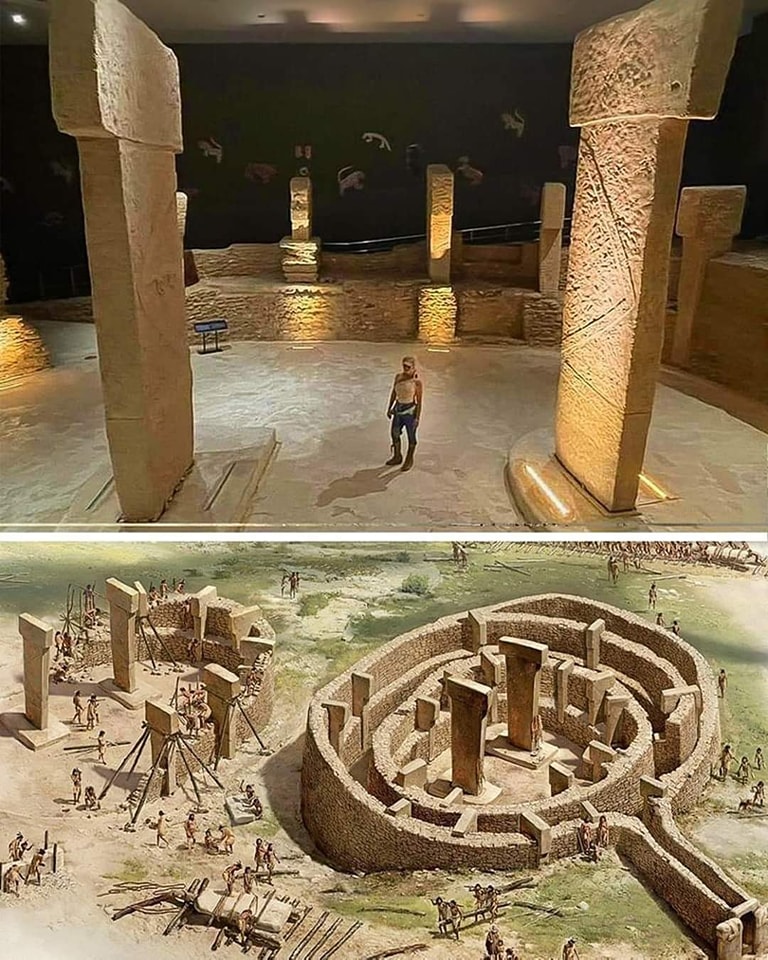
In the largest part of the book, the authors depict the life of hunter-gatherers living thousands of years before the agricultural revolution but able to create huge urban complexes and eventually ruling without a dominant oligarchy.
The book identifies examples in China, Peru, the Indus Valley (Mohenjo-Daru), Ukraine ((Taljanki, Maidenetske, Nebelivka), Mexico (Tlaxcala), the USA (Poverty Point), and Turkey (Catalhoyuk), where large-scale, city-level living was taking place (from about 10,000 BC to 6,000 BC).
But these didn’t involve a ruling caste or aristocratic class; they were explicitly egalitarian in their house building and market trading; made many innovations in plumbing and street design; and were part of continental networks which shared best practice. The agricultural revolution was not a “revolution”, the book argues, but rather a continual transformative process spread across thousands of years when hunter-gatherers were able to flexibly organize themselves into mega-sites (several thousand inhabitants), organized without centers or monumental buildings, but built with standardized houses, comfortable for daily life, all of this achieved without static hierarchies, kings, or overwhelming bureaucracy.
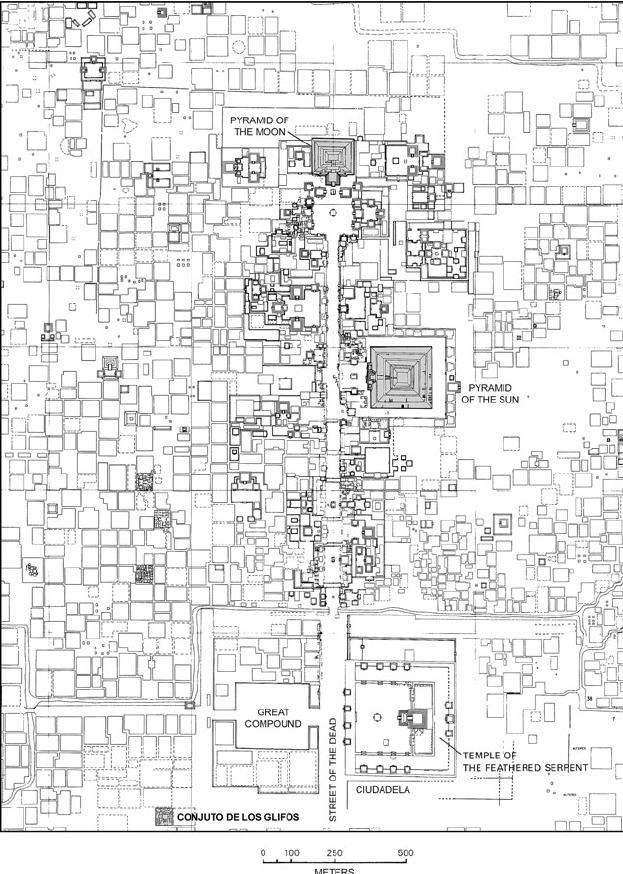
Another case in point is the example of Teotihuacan, which rivaled Rome in grandeur between about 100 BC and 600 AD, where, following a political revolution in 300 AD, an egalitarian culture embarked on a massive social housing program designed to give all residents decent quarters.
Conclusion
Living today, it is very difficult for most of us to imagine that a society, a culture, or a civilization, could survive over centuries without a centralized, forcibly hierarchical power structure.
While, as the authors indicate, archaeological evidence, if we are ready to look at it, tell us the contrary. But are we ready to challenge our own prejudices?
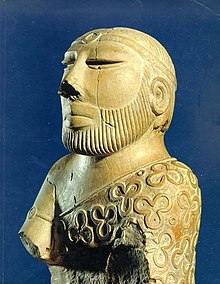
As an example of such self-inflicted blindness, worth mentioning is the case of the “King-Priest”, a small male carved figure showing a neatly bearded man, found during the excavation of the ruined Bronze Age city of Mohenjo-daro (Pakistan), dated to around 2000 BC and considered « the most famous stone sculpture » of the Indus Valley civilization. While in Mohenjo-Daro there exists neither a royal palace or tomb, nor a religious temple of any nature, British archaeologists immediately called it a “King-Priest”, because very simply “it can’t be otherwise”.
Reading Graeber and Wengrow’s book obliges us to adjust our views and become optimistic. They show that radically different human systems are not only possible but have been tried many times by our species. In a public talk in 2022, Wengrow presented what he sees as lessons for the political present from the past, where human beings were much more fluid, conscious and experimental with their social and economic structures :
“Now what do all these details amount to? What does it all mean? Well, at the very least, I’d suggest it’s really a bit far-fetched these days to cling to this notion that the invention of agriculture meant a departure from some egalitarian Eden. Or to cling to the idea that small-scale societies are especially likely to be egalitarian, while large-scale ones must necessarily have kings, presidents and top-down structures of management. And there are also some contemporary implications. Take, for example, the commonplace notion that participatory democracy is somehow natural in a small community—or perhaps an activist group—but couldn’t possibly have a scale-up for anything like a city, a nation or even a region. Well, actually, the evidence of human history, if we’re prepared to look at it, suggests the opposite. If cities and regional confederacies, held together mostly by consensus and cooperation, existed thousands of years ago, who’s to stop us creating them again today with technologies that allow us to overcome the friction of distance and numbers? Perhaps it’s not too late to begin learning from all this new evidence of the human past, even to begin imagining what other kinds of civilization we might create if we can just stop telling ourselves that this particular world is the only one possible.”
Comments are Closed